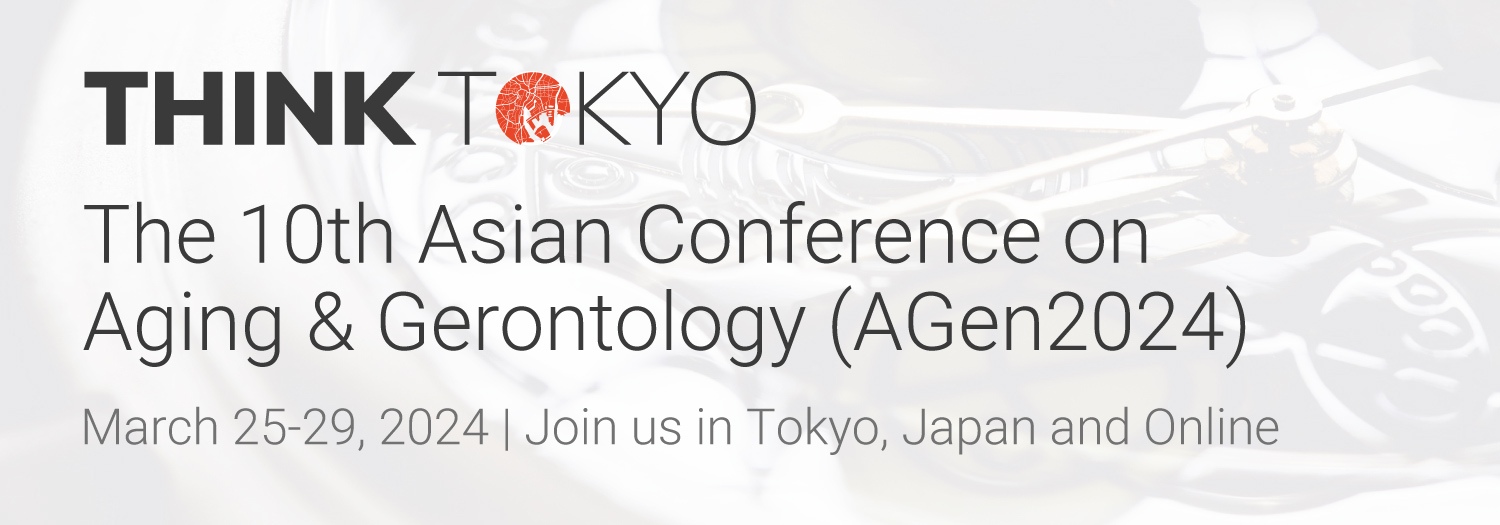Ryuji Yamazaki-Skov of Osaka University, Japan, has joined The 8th Asian Conference on Aging & Gerontology (AGen2022) on the panel for “Helping Hands: Robotic Assistance in Supporting and Maintaining Social Interactions with Elders”.
Hee Rin Lee of Michigan State University, United States, and Keith W. Miller of the University of Missouri – St. Louis, United States, have also been chosen to discuss this topic. Follow the conference website and social media pages (Facebook / Twitter) for more information.
To participate in AGen2022 as an audience member, please register for the conference.
Speaker Biography
Ryuji Yamazaki-Skov
Osaka University, Japan

Ryuji Yamazaki-Skov (Yamazaki), PhD is a Specially Appointed Associate Professor at the Symbiotic Intelligent Systems Research Center, Institute for Open and Transdisciplinary Research Initiatives, Osaka University, Japan. He received a MA degree in Philosophy from Chuo University and a PhD in Knowledge Science from Japan Advanced Institute of Science and Technology (JAIST) in 2004 and 2010 respectively. He has worked as a Researcher at JAIST, Advanced Telecommunications Research Institute International, Japan, as an Invited Researcher, a member of the PENSOR project (Philosophical Enquiries into Social Robotics) at Aarhus University, Denmark, and as an Assistant Professor at School of Social Sciences, Waseda University, Japan. His research interest is in new media studies with a focus on social robotics, clinical philosophy & ethics, and robo-philosophy, including the research topics of human-robot interaction, phenomenology of embodiment, care for older adults, dementia care, cross-cultural ethnography, and inter-generational relationships & altruism. Currently, his main research activities are part of the MEXT Society 5.0 Realization Research Support Project at Osaka University:
https://www8.cao.go.jp/cstp/english/society5_0/index.html
https://www.ids.osaka-u.ac.jp/ildi/en/index.html
Abstract
Helping Hands: Robotic Assistance in Supporting and Maintaining Social Interactions with Elders
The use of robotic assistive devices in nursing homes, residential facilities, and homebound elders has rapidly increased as technology has improved. Researchers have argued that robotics will play a significant role in the coming decades. Lifelike animals provide visual and physical stimuli to impaired elders. Still, more advanced technology now allows robotics to provide communication support, reminders, and the ability to interact with family members and offer eldercare virtually. Alternatively, some care advocates have expressed concern that robotics will become a substitute for in-person interactions between elders, family members, and support networks. There are also concerns that the extensive use of robotics may negatively impact the quality of care received by the individual from residential providers. This panel will offer an authoritative discussion of the positive uses of robotics in supporting and supplementing the care of homebound, disabled, or cognitively impaired elders. While recognizing the potential risk of abuse if robotics becomes a substitute for care, the panel will emphasize how robotics can improve the emotional health of elders and best practices to ensure that robotics represents a supplemental tool to improve the overall quality of life of the older population.

